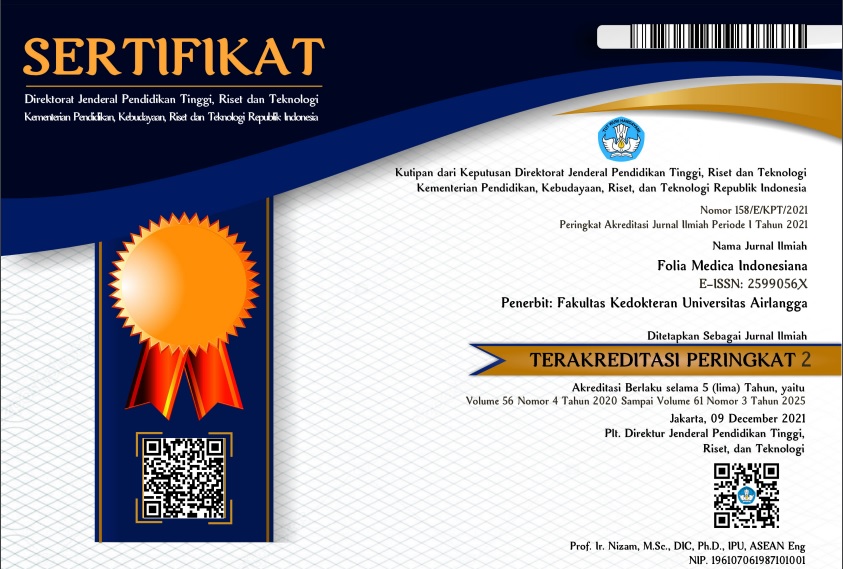Abstract
Balloon angioplasty in calcified coronary lesions may have a decreased success rate and an increased incidence of complications. This lesion remain a technical challenge in interventional cardiology despite novel approaches and devices. We describe a case with heavy calcified coronary lesion in LAD that was not only resistant to high-pressure inflation of conventional, non-compliant balloons and cutting balloon but the inflations also results in balloon rupture. Even, the first balloon became fracture and entrapment in LAD. The fractured balloon could be removed using second baloon inflation in LCX. The angioplasty balloon was successfully performed after rotational atherectomy by rotablator and succesfully continued by implantation stent DES.
Keywords
heavy calcified lesion, balloon rupture, balloon entrapment, failed angioplasty, rotational atherectomy
First Page
257
Last Page
267
DOI
10.20473/fmi.v51i4.2856
Publication Date
11-15-2016
Recommended Citation
Oktaviono, Yudi Her.
2016
Pci in patient with heavy calcified lesion. Management and balloon rupture complication.
Folia Medica Indonesiana. 51,
4 (Dec. 2015 ), 257-267.
Available at: https://doi.org/10.20473/fmi.v51i4.2856






